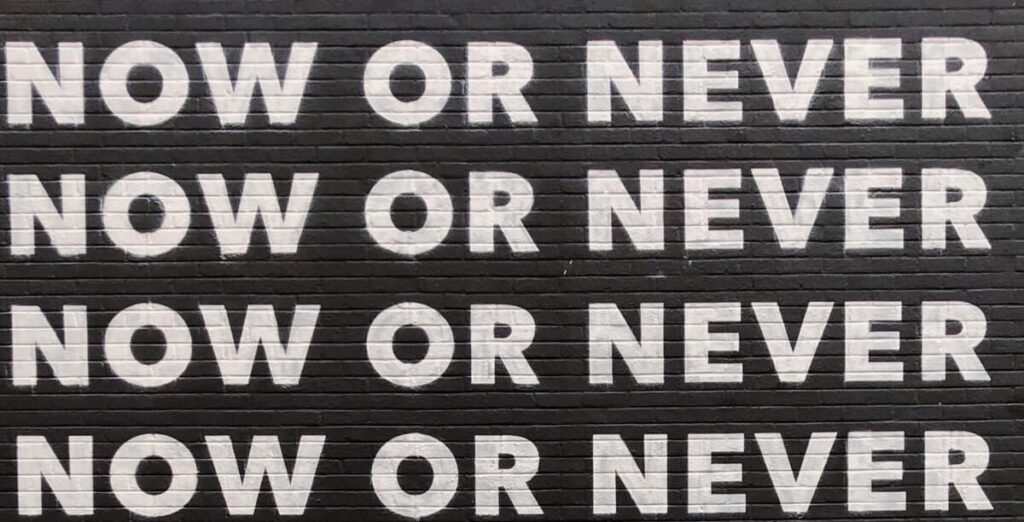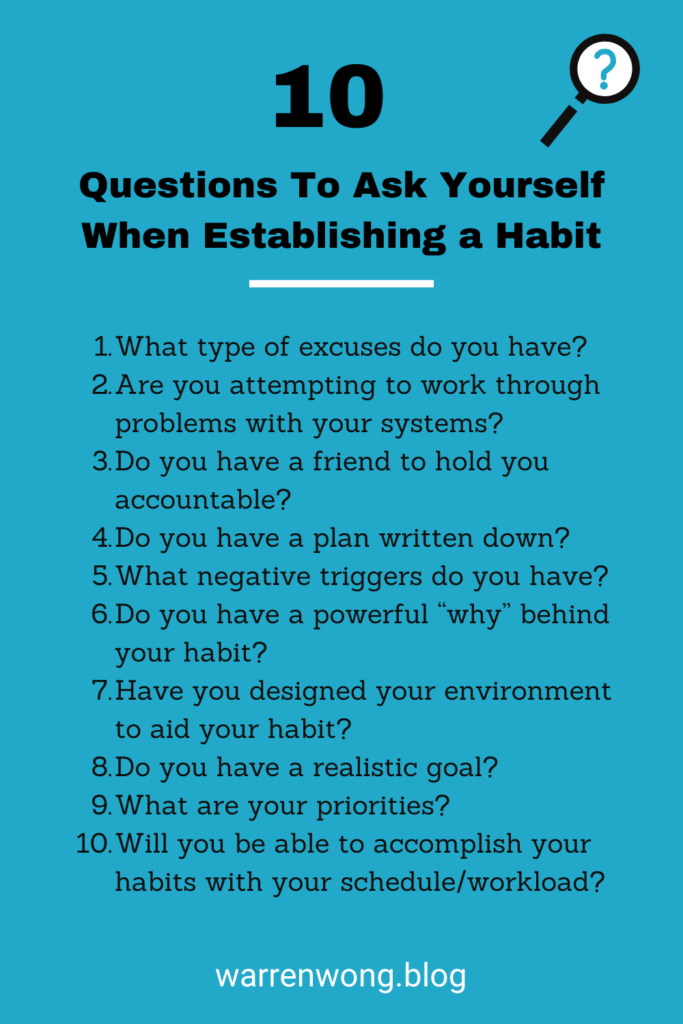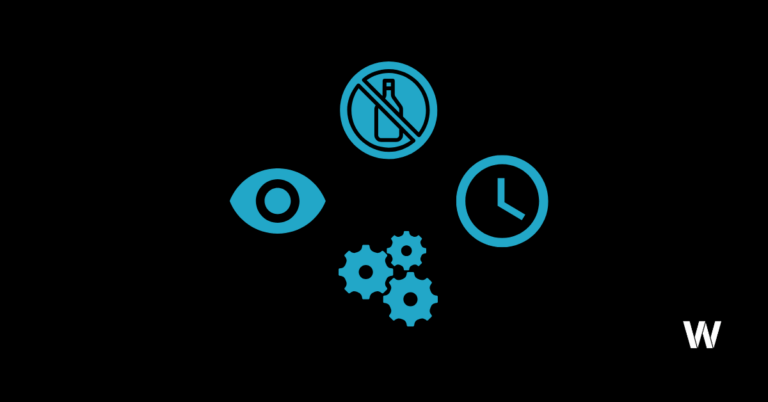How To Take Control of Your Life: Beginner’s Guide to Lifestyle Design
By Warren Wong
This is a guide on how to take control of your life, the beginner’s guide to lifestyle design.
- Do you feel like you’re stuck where you’re at in life, and see no improvement?
- Do you wish you could just go on a long vacation and escape your problems?
- Do you have a feeling of dread waking up in the morning?
- Do you say to yourself, I don’t have time?
- Do you have negative self-talk and question if you’re the right person for the job?
If you answered yes to any of these questions, then you’re in the right place.
This is the beginner’s guide on how to take control of your life. Learning practical ways to live the life you deserve is important. None of us deserve to be working a dead end job that you hate or going to work on a Monday and wishing it were Friday instead.
In this guide you will get:
- 4 simple ways to develop your greatest asset
- 3 powerful principles that will help you take control of your life
- Practical life applications you can try today

What is Lifestyle Design
Lifestyle design is about taking control of your life by being intentional with who, and what you let into your life. It’s not about escaping your 9 to 5, and working as a digital nomad in Bali (although who can blame you).
Lifestyle design is being deliberate with how you want to spend your life. If you think you have all the time in the world, you really don’t!
Sooner or later, life is going to throw a wrench into your plans. Whether that’s getting married with a few kids, an economic downturn or unforeseen health problems, you just can’t “go with the flow” and pray to God that everything will turn out OK.
On the flipside, we can implement certain principles and apply good habits, which will be the foundation in taking control of your life and achieving the lifestyle that you want.
So now that you understand what lifestyle design is and why it’s so important we are going to dive straight into probably the most crucial principle in taking back control.
Having the proper mindset
Mindset, is the most important thing that can either propel you to extraordinary heights or it can totally and completely ruin you.
Ashton Kutcher, prominent actor, investor and entrepreneur went to jail at 18. The shame of that traumatic event pushed him to prove to everybody that he was not a nobody. And so he took risks that he would never have done otherwise.
Steve Aoki, two-time Grammy nominated producer/DJ, entrepreneur lives by the motto, “by any means necessary”. It’s from Malcolm X, and it inspired Aoki to achieve his goals by any means necessary. Whether that’s finding creative ways to reach his fans or finding ways to design his lifestyle to his work.
I share these two stories out of hundreds because they are stories we are used to hearing. How some famous person mounted seemingly insurmountable odds and achieved success.
However, behind every success story is an incredible journey filled with doubt, fear, and failures. Steve Aoki and Ashton Kutcher only achieved success because they had the proper mindset. They faced their failures and took their Ls, but they got right back to work.
Defining your mindset
A mindset is a set of established attitudes and beliefs. Your mindset can enable or disable you.
A growth mindset is one that embraces challenges, sees effort as a road to mastery, and listens and learns from constructive criticism.
A fixed mindset is one that avoids challenges, feels threatened by others’ success, and thinks effort is a waste of time.
Here is a great article by Brain Pickings, which dives deep into the difference. Click here.
Practical Application: Start spending 10 to 15 minutes once a week and think about your week.
Did you meet it with a fixed or growth mindset? Do you have any of the limiting beliefs of a fixed mindset? Or do you have a growth mindset? What can you try differently next week? Make sure you write them down.
Slowly you’ll see gradual improvements on your outlook and how you respond to things that come up in your life.
It is important to be truthful. Lying to yourself will only hurt you. Self-deception and avoidance may seem like the better option compared to the pain of trying and failing, but in the long run, you’re only hurting yourself. Death by a thousand cuts.
Related post: The Power of Truth: The Secret To Taking Control of Your Life
Now that we’ve gone over the importance of mindset, let’s talk about some practical ways to develop it.
Your Greatest Asset
Your mind is your greatest asset. Read it again. Yes, and don’t forget it. Write it down on a sticky note, or tattoo it to your arm.
Your mind is the tool to help you take control of your life, but only if you develop it.
Left alone and unattended your mind can do terrible things. Like let your ego ruin your relationships, make excuses, or play the victim card.
Developing your mind should be your life’s mission. It’s why I subscribe to the notion of being a lifelong student.
4 Simple Ways to Develop Your Mind
1. Reading
When Warren Buffet started his career he spent 2 to 3 hours a day reading. Whether that’s history, biographies, finance books or relevant news (keyword relevant), he consumes it like his life depends on it.
He made his mark because he is one of the most knowledgeable financiers out there. Even now when his career is well established he spends close to 80% of his day reading. I think you can spare 15 minutes.
If you’re looking for books to read, these are the books I recommend. Click here.
Related post: 7 Reasons Why Books Should Be Your New Best Friend
2. Practicing Mindfulness
Mindfulness is about being fully in the moment. If you find yourself saying, I don’t have time, feel stressed and anxious, then practicing mindfulness is for you.
Ultimately, practicing mindfulness through activities like meditation, introspection, and spending time with family, can improve your mind, body, and soul.
If you’re looking for ways to practice mindfulness you can read this related post. Click here.
3. Getting good Sleep
A study published in July 2019 in the journal Current Biology indicates a poor night’s sleep negatively impacts brain function.
Through lack of sleep it will affect long-term learning, processing of memory, and affect mood, alertness, and concentration.
If you’re not convinced you need to make sleep one of your top priorities, then check out the statistics below.
Prevalence of Short Sleep Duration (<7 hours) for Adults Aged ≥ 18 Years, by County, United States, 2014

- Source: https://www.cdc.gov/sleep/data_statistics.html
In a nation that runs on the mantra, “I’ll sleep when I’m dead”, and moniker’s like the “city that never sleeps”, we can see why societal norms and doing what everyone is doing is a slippery slope.
Did you know that when you get a good night’s sleep it can improve your learning capabilities and keep you ahead of the competition?
If you’re interested there’s an incredible Coursera online course provided by Dr. Barbara Oakley called, “Learning How To Learn”.
I highly recommend it. (It’s completely free)
Start with getting to bed one hour earlier tonight.
4. Having Diverse experiences
What do I mean by having diverse experiences? Setting yourself apart by traveling, experiencing different cultures, ways of life — socioeconomically or otherwise — and facing new challenges are all ways to develop your mind.
On October 27, 1858, a boy was born. He grew up as a sickly boy with debilitating asthma. He had coughing fits and stayed up all night, with no relief in sight.
Despite that he got into Harvard College, became a runner up to a Harvard boxing tournament, and graduated magna cum laude.
He continued on in the ranks to be a member of the New York State Assembly, New York City Police Commission, then Assistant Secretary of the Navy.
He then resigned his post to form the First U.S. Volunteer Cavalry Regiment, attaining the rank of Colonel. He was also a rancher and hunted bears.
Oh and I forgot, he was also the President of the United States of America. His name was Theodore Roosevelt.
If you’re curious about the details, Edmund Morris does a phenomenal job on covering the life of Theodore Roosevelt. Get your copy here.
Notice how none of these are quick fixes. The way to success is not a short term fling, it’s a long steady relationship that requires work AND time. Sorry to burst your bubble.
An unorthodox approach to life
Stop going with the crowd. If you want a higher quality of life, you will have to go against the grain. You can’t be doing what everyone else is doing.
What’s everyone doing? They are binge watching Netflix, mindlessly scrolling through social media, and spending hours playing Call of Duty (sorry calling you out).
If you want to stand out from the crowd, then put those bad habits behind.
Related post: Video Game Addiction and How I Beat It
Look, I was addicted to video games too. I binge watched all the popular titles on Netflix, and scrolled through Instagram feeling shittier than when I started.
I get it. It’s enjoyable and an easy and cheap way to entertain ourselves. To get lost in the lives of these characters on the screen in order to escape our own. To mask the fact that we aren’t satisfied with our own life and live vicariously through others.
However, if you have even an inkling of wanting to change your current direction in life — assuming why you’ve read this far — you need to live an unorthodox lifestyle.
“To do the same thing over and over again, expecting different results is the definition of insanity.” Albert Einstein.
Ok, Warren that’s all good and great.
I know I need to change my mindset and develop it, but HOW do I do that?
Good question. I’m glad you asked. I’m going to give you the answer.
There are 3 core principles you need to consider to improve your quality of life.
Principle # 1: The Secret Sauce
Habits. Good habits are the foundation blocks. Forming good habits is how you take control of your life. But, more importantly it’s the systems that you implement that will get you to stick with them and design the lifestyle you want.
If you find yourself attempting new habits for a few days and then quitting then you didn’t have good systems in place. It takes approximately 20 days to break away from an old habit and 66 days to establish a pattern for a new habit.1
So what is going to take you from day 1 to day 66? No, it’s not pure will power, nor is tying yourself to your bedpost, so that you won’t be tempted to have leftover cheesecake for a midnight snack.
Systems are a set of rules and procedures that work together to bring you from A to B. If you are trying to make exercise a habit, you should take a look at your systems.
Systems for Exercise
- Gym clothes prepped the night before
- Have a gym “accountability” buddy that will call you if you’re missing
- Getting a good night’s sleep the night before
Systems for Good Diet
- Removing junk food from your house (environment design)
- Surrounding yourself with fit/healthy people
- Reading food labels to look for unhealthy fats, sugar, and salt that can set you back from your goals

Here is a post that outlines simple systems for exercising. Related post: Exercise Regularly in 3 Easy Steps
Those voices in your head that’s telling you to quit, that’s normal. It’ll be your system that will keep you on the right track when you’re feeling out of sorts and don’t “feel” like going to the gym.
Depending on how good your systems are, they will remove every trigger, excuse, and “what-ifs” from your mind.
However, don’t get me wrong, you’re still bound to have bad days. Even Arnold Schwarzenegger, has a bad day. You will too, but you’ll have less with systems in place.
If you made it this far, you are determined to take control of your life. I want to see you succeed. I get a kick out of that. That is why I put together something that I wished someone handed me years ago.
My Ebook, 8 Habits That Changed My Life: Doing The Small Things Right. In it are 8 habits that I think you should consider in your lifestyle design journey. It is packed with practical information that you can do right away!
For your FREE copy click here.
3 Systems you Can implement right away
1. Track your progress. If you don’t track it, you don’t know if you’re making progress or not. Get in the “habit” of writing down the amount of sets and reps, the calories, the number of words you wrote. It will keep you accountable.
If you have a weight loss goal. Write down your weekly weigh-ins and share it with an accountability buddy.
If you are trying to get in the habit of reading more, join a community of readers like Goodreads.com. Or create a calendar and X off the days that you read or not with the goal of never having 2 blanks in a row. Make it a game.
Action beats inaction. Even if it is one page, or a ten minute workout. Get started and it will get easier.
2. Planning. Spend 10 to 15 minutes everyday planning out the following day. Write down the top priorities that you MUST get done.
These priorities should include a baby step to getting you to 66 days of uninterrupted habit building. Think, write 100 words, go to the gym versus write an essay, lose 10 pounds.
“A goal without a plan is just a wish.” — Antoine de Sainte-Exupéry
3. Accountability. Having an accountability buddy or system will help you get to day 66. Go tell a friend what you’re attempting and have them check in on you everyday or week.
Having to explain why you failed to do something is a good motivator to do it even when you don’t “feel” like it.
If you want to take this even further would be to use an app like Beeminder.
Notice how working on the smaller tasks is really emphasized all throughout this guide. It is the foundation of habit building and lifestyle design.
In order to create a life that’s right for you, systems of good habits need to be established.
“The reasonable man adapts himself to the world: the unreasonable one persists in trying to adapt the world to himself. Therefore all progress depends on the unreasonable man.” George Bernard Shaw – Irish playwright, Nobel Prize recipient
Principle #2: Get Financially Smart
Money. It’s a touchy subject for most people, but isn’t for some. Most of us just like to spend it and postpone things like retirement, budgets, emergency funds, and investing for later on in life, but is that wise?
The other group, the financially literate, they like talking about money. They want to learn more about it, how to leverage it, how to invest it, how to use it to build businesses.
These individuals are usually the ones that have a goal set in mind to take life into their own hands. They are the definition of smart lifestyle design.
They have a date set of when they want to retire (no, it’s not 65). Additionally, they know how much money they need in order to live well, without depending on the government or loved ones.
Financial freedom = passive income > living expenses (Click to Tweet)
Passive income is money that is coming in that you don’t have to work for. In other words, money working for you. Think, stocks, real estate, owning businesses, royalties, etc.
Being financially smart is about taking control of your life. Knowing the amount of money you have coming in and going out is important. Why? Because if you don’t you will end up like most people. And most people are living paycheck to paycheck.
Apparently close to 80% of Americans fall into that scenario2. You might be one of them. And if you are, there’s nothing wrong with that. What’s wrong is not doing anything to better your situation.
What happens when there’s an economic downturn, or your employer decides they don’t need you anymore? Do you have a backup?
The typical employee
The typical employee wakes up around 6 to 7 AM to get ready for work, drives through a 30 minute commute, works a 9 to 5 job for an employer who is less than caring about your “personal” needs and focused on company profitability, and receives a paycheck once every 2 weeks.
They usually spend a few days a week eating out with their friends, buying a coffee, and scroll through Amazon or their favorite website to look for their next “toy”.
All of those things are absolutely OK, but what’s lacking is the dependence on that one source of income. Hence, the term living paycheck to paycheck.
If you are that person just described, check out this post.
Related post: Lies We Tell Ourselves About Money
We aren’t here to debate whether money will bring you happiness or not. Money pays the bills, college, vacations, and the car.
Something that took me a long time to realize, and when I truly understood what it meant, changed my world.
The exchange of time for money will leave you powerless. You have no control of your life, because you are trading time for money. I realized that being financially savvy gives you time freedom.
Time Freedom
A tenet of lifestyle design is time freedom. Imagine if you had all the money in the world, would you still be working or would you travel the seven seas and sip on a pina colada in Bora Bora?
Would you quit your current J.O.B., AKA just over broke?
Time freedom allows you to create your own schedule, what to say yes and no to. This allows you to do more important things, like being there for your kids dance recital or futbol match.
It also allows you to start working on your bucket list, before you’re retired. Most importantly, it gives you peace of mind and to really live life, the way YOU want to.
When I was younger I was not financially educated and didn’t understand the power of time freedom. The idea really hit home during a conversation with one of my mentors.
“Well, the great thing about financial freedom is you live life on your own terms. Everyone else is on their way to work to a job that is less than ideal, to build someone else’s dreams to get a paycheck to spend on things that don’t matter, and wonder why they don’t like their lives.”
I didn’t say anything, but I just listened since he had done so well financially and retired early. “You see, the beauty is that I’m walking my dog on a Tuesday morning and enjoying the sun, while everyone else is working. And I work when I want to, and only on what I enjoy. That is true freedom.”
After that conversation my mind was spinning. I knew I wanted to attain time freedom.
Let’s face it. We all want more in life, and there’s nothing wrong with that. Even those friends that say, “I’m happy with my life”, want more. And that’s fine, wanting more keeps you pushing yourself, striving to be better. It removes complacency.
Ok, Warren great, I know that money is important and what it can do, but what do I do now?
Great question, I’m glad you asked.
In order to take control of your life and your finances, you need to understand money and your relationship with it.
There are 3 important ideas to understand.
- Get financially educated. Money is a big part of our lives, and to not understand it is expecting to drive while blindfolded. That’s what many people do on a daily basis. And then they wonder why they are always in debt, not getting anywhere in life, and are scared to lose their jobs. And all this is holding them back from the better things in life which are built on a stable financial education.
- Your relationship with money. Do you have a toxic relationship with money? Do you find yourself not knowing where your money goes every month and dread looking at your credit card bills. These are tell tale signs. In order to take control of your life you need to take a deep dive into your spending habits, your triggers, and what your short and long term goals are.
- Building more sources of income. This is the real vehicle for lifestyle design, one that often isn’t talked about. Money runs the world, whether we like it or not. There is absolutely no reason why we can’t pursue our passion while having a comfortable lifestyle. If you hate your job, then find another one, or create your own. What you can’t afford is to not do anything.
Practical application:
- Pick up a book on personal finance.
- Take time to set financial goals, and build systems to implement them.
- Find a mentor. (one with a proven track record)
If you’re serious about getting financial education, make sure to check out my guide, Financial Education: The Ultimate Money Guide to Living Financially Free. There you’ll find my top recommended personal finance books, and also a deeper dive into the concepts you may be unfamiliar with.
RECAP
So, by now you understand how important your mindset is and how to develop it.
Think of it this way. Your mindset is the fuel for your car. It powers the whole thing. Good habits and systems form the foundation of a powerful engine, and financial freedom is the destination.
However, to start your car you’re missing something vitally important. Can you guess what it is? You’re missing the “spark” that ignites the engine and starts the car. That “spark” is your life purpose.
And so the third and last principle you need to understand in order to take control of your life is discovering your life’s purpose.
Principle #3: Finding Your Life Purpose
“To laugh often and much, to win the respect of intelligent people and the affection of children…to leave the world a bit better…to know even one life has breathed easier because you lived. This is to have succeeded.” — Ralph Waldo Emerson
I love that quote from Emerson. It’s a very simple interpretation of life’s purpose.
I can’t possibly know what your life purpose is or even attempt to. It will be different for everyone and may change over time. But, I believe that your life’s purpose will be eminently powerful in changing your mindset, which in turn will fuel your habits, achieve financial freedom and take control of your life.
If you’re feeling lost, worried or “stuck” in life, it may be because you don’t know what your purpose is.
You feel as though you’re going through a routine that perhaps friends, society, or your parents imposed on you and don’t know why you’re doing it. Like actually “why” we’re doing the things we’re doing. Not because we have to pay the bills, or because that’s what everyone else does, but because deep down you think that there’s more to life.
More to life doesn’t have to be a life devoted to orphans or putting humans on Mars. It can be as simple as working for a non-profit organization whose mission you believe in.
If you’re passionate about animal rights, then start volunteering at the animal shelter or using your skills to help out the cause. If you’re a graphic designer, volunteer your skills for an animal rights organization. If you’re an accountant, volunteer to audit their finances or do their bookkeeping. Be creative.
What’s the point of it all?
I don’t believe that the only reason we were born is to work, and have a family. There must be more to it than that. Perhaps, our relationships, personal discoveries, and triumphs also form our life’s purpose.
I believe that each of us has a life’s purpose. It is not predetermined, but it is discovered. Some of us figure it out earlier in life than others. That’s OK.
There is value in the journey of discovering what you like and dislike. When we have purpose in our lives, we are happier, more confident, and engaged with those around us.
Opposite of that, when we have no purpose, we feel like there’s no point in anything. We live for short term highs like drugs, parties, sex, and fast cars.
There’s something missing that we crave. That thing we crave is purpose.
What is my purpose?
To many psychologists, purpose is the long-term goal of achieving something that is personally meaningful and makes a positive mark in the world.
Moreover, as we age, our beliefs, assumptions, and experiences will change along with our purpose. It is changing, as are we.
I think that gives many of us relief. Knowing that our purpose is not preordained and given to us by a higher power.
And so purpose is not a destination, but a process and journey.
4 Tips for Finding your Life Purpose
- Surround yourself with interesting people. Find passionate and driven people. Just by being near them will give you inspiration and insight on how to capitalize on your own passions. Who knows, maybe one of those passions will develop into your life purpose.
- Volunteer. Go and spend some time on the weekends volunteering for a cause that triggers deep emotions within. Usually these are good indicators that you will find meaning in the work.
- Do what you already spend a lot of time doing. Is there something that you find yourself spending a lot of time doing and find it effortless? Perhaps there is a way to monetize it.
- Personal experience. Do you have personal experiences that you can draw upon? It can be good or bad. If there was a traumatic experience, perhaps you can speak or write on it. It would be a source of inspiration to others who have gone through similar situations.
Conclusion
Tl;dr: if you feel like you’re not where you want to be in life then it comes down to your mindset and lifestyle design.
Your mind is the most powerful asset you have to take control of your life. And so we need to always develop it.
4 simple ways to develop your mind is: reading, practicing mindfulness, quality sleep, and having diverse experiences.
In order to create the lifestyle that you dream of will require the right habits which form the foundation for lifestyle design.
Get financially smart. Learn what the wealthy are doing and do it. Money will fuel your ability to live life on your terms not someone else’s.
Thirdly, the keystone for taking control of your life will be your life’s purpose. Knowing why you’re doing something is just as important as knowing the how.
Footnotes
- M.D, A. (2019, August 19). Sleep and Memory: How They Work Together. Retrieved September 22, 2020, from https://www.psychologytoday.com/us/blog/psychiatry-and-sleep/201908/sleep-and-memory-how-they-work-together
- Phillippa Lally, Cornelia H. M. van Jaarsveld, Henry W. W. Potts & Jane Wardle. (2009). How are habits formed: Modelling habit formation in the real world. European Journal of social Psychology. https://doi.org/10.1002/ejsp.674





